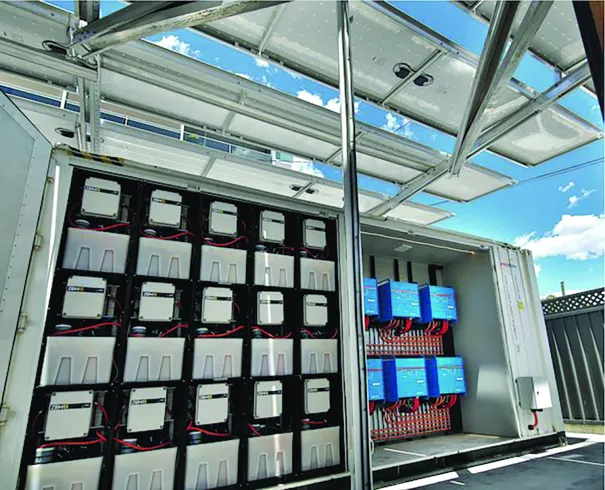We are navigating a dynamic period as it relates to business, the global economy, and geopolitics. Business leaders and investors alike need to determine their investment strategy to navigate this ongoing uncertainty.
Throughout history and different economic cycles, capital investments in technology have endured because the innovation they create transforms society and businesses, even during the toughest times. Look no further than the COVID-19 pandemic – without amazing technological innovation, we would certainly not already be getting our fourth vaccine booster shots let alone our first, with most vaccines historically taking an average of 5-10 years to be developed. What’s more, businesses beyond the healthcare sector also survived – and thrived – through the COVID downturn due to technology investments in collaborative software, AI-enabled supply chains, and more. The pandemic accelerated key technology trends, and exposed gaps between companies that had the foresight to invest compared to those that lagged.
We have reason to be optimistic about the tech sector as a whole – and that is especially true when looking at enterprise tech. In a recent Gartner analysis, the message was simple: “Enterprise IT spending is recession-proof,” with worldwide IT spending expected to reach $4.6 trillion in 2023, up 5.1% since 2022.

Here are three market transitions in enterprise tech that should be an investment priority this year and beyond:
Data is king – but it’s the ability to turn data insights into action that opens the door to innovation.
A recent HPE survey of global business leaders found that the majority of organizations today have a relatively low data “maturity” level (the average organization scored a 2.6 on a five-point scale, with only 3% reaching the highest maturity level of 5.0), meaning their ability to create value from their data is limiting their ability to drive real business outcomes, such as accelerating product innovation, advancing customer experience, or improving environmental and humanitarian supply chain standards. The impact of data-first modernization will differ from vertical to vertical but can have an immense impact on business and society as a whole.
Recognizing the power of data, the U.S. government commissioned breakthrough supercomputing technology to deliver insights from data as quickly as possible. As a result, in 2022, the U.S. reached the important milestone of the world’s first and fastest exascale supercomputer with the Frontier system for the U.S. Department of Energy’s Oak Ridge National Laboratory. With the speed to solve calculations that are eight times more complex and 10 times faster, this system enables our country’s top scientists and researchers to analyze huge data sets to solve society’s toughest problems around climate change, renewable energy, medicine discovery, and so much more.
Access to more diverse data pools is underpinned by a decentralized, hybrid cloud ecosystem.
We are in the midst of the transition from a centralized to a decentralized age of digitization, where intelligent and networked devices, machines, buildings and infrastructures generate unprecedented amounts of decentralized data. This data holds enormous potential to advance how we live and work – but we must unlock its value.

Consider an example that resonates on a personal level with too many of us – cancer research. For a research company looking to determine how specific patients might react to a new cancer therapy, the only way to get the data needed is to go to leading cancer hospitals around the nation. In a centralized cloud environment, that data would be difficult to access because hospitals would not relinquish ownership of private patient data. But in a decentralized model, hospitals can maintain ownership and anonymity of their patient’s data, while still sharing the AI model insights from it, in a secure and decentralized machine learning network.
This is the value of AI solutions like Swarm Learning, which increases accuracy and reduces biases in AI model training by enabling access to larger datasets, without requiring companies to share the actual data. Catharina Hospital is an example of a healthcare institution utilizing hybrid cloud, AI, and data modernization initiatives to support data-driven patient care – specifically for those who suffer from heart disease. Heart failure can develop without any noticeable symptoms, so more access to better data (both inside and outside of the hospital) means Catharina can better pinpoint hard-to-find cardiogram anomalies and, in turn, help patients manage preventative care and treatment more quickly.
Enterprise technology will be key to enabling businesses to operate more sustainably than ever before.
Government regulations related to sustainable business practices are on the rise. Consider the mandatory climate risk disclosure rule that the U.S. Securities Exchange Commission (SEC) proposed last year. The rule would require all publicly traded companies to report on direct and indirect greenhouse gas emissions, as well as climate-related risks such as droughts and wildfires, requiring extensive data tracking, collection, and analysis. Company CFOs have perhaps been among those most keenly monitoring the SEC’s rule, but CIOs are also paying close attention, given the significant energy required to run the technology systems of today’s modern enterprises. In this new landscape, the CIO role will further grow in relevance and importance as large public enterprises look for ways to upgrade their data collection and reporting systems while reducing the environmental impact of their IT estates. Companies will seek innovative partners to provide upstream supplier climate impact data that can also help reduce the enterprise’s carbon footprint.
Companies are not going to stop investing in tech any time soon – in fact, downturns are times when so many have broken away with new innovations. Business investments to derive greater value from data, pursue hybrid cloud ecosystems, and enable more sustainable business transformation are prudent, especially as every company, regardless of industry, becomes a digital company.
















